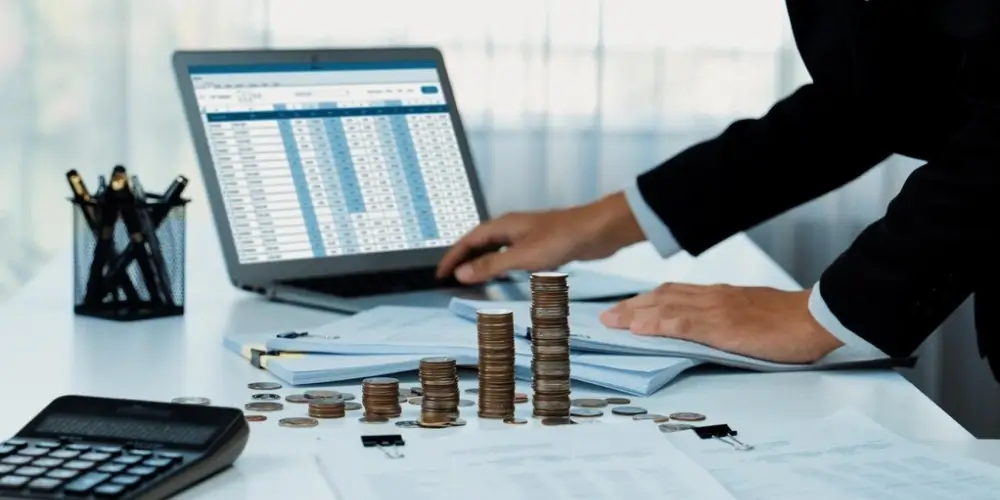

Personal Expense Tracking: Effective Strategies for Financial Control
24/07/2024 Charles Patrick 2037
The management of personal finances is something that in contemporary society nobody lacks but needs to ensure efficiency in the long run. The record of personal expenses is one of the central activities of any financial management as they help to control the expenditures, find the ways to decrease them and, respectively, accomplish the financial objectives. Moreover, below, we describe the most promising ways to monitor personal expenses and use the terminology of finance and knowledge of professionals as a compass towards financial success.
1. Budgeting: The Foundation of Expense Tracking
Budgeting is at the center of many expenses tracking strategies and it refers to the process of estimating how much of financial resources will be required and how much will be available to accomplish a given task. A budget is a financial guide that estimates the income of a business and the amounts that have been planned to be spent within a certain time frame. Developing a realistic budget requires one to classify the expenditures into mandatory and flexible ones, which include rent or mortgage payment and food and entertainment respectively.
Envelope System: In this process, a certain amount of cash is literally placed into labeled envelopes representing various spending categories. In an envelope system, once the money placed in an envelope is used, there is no possibility of spending money from the next envelope placed in the same category for the remaining part of the month. This method enables people to be disciplined in spending, they do not spend much; thus they do not overspend.
Zero-Based Budgeting: Now widely used in the business arena, zero-based budgeting implies that every cost has to be justified as from a change of the budgeting period. Another benefit of reviewing each expense is that one is able to exclude wastage and probably help in advising on how to spend money wisely.
2. Digital Tools: Leveraging Technology for Precision
As a result of advancing technology, there are so many tools and applications available in the market to facilitate the tracking of expenses. They include tracking and monitoring in real time, automated sorting and better reporting making the process much more accurate and efficient.
Personal Finance Apps: Nowadays applications like Mint, YNAB (You Need A Budget), PocketGuard are all connected with bank accounts and credit cards that show a detailed picture of expenditure. These apps help in categorizing the expenses, generating the spending reports and includes the feature of budgeting.
Spreadsheets: Others may opt for manual methods such as using programs like the Microsoft excel or Google sheets to track the expenses in detail. Some other people create columns for different categories, and some use formulas in order to get totals, so in this way people can receive much information about their expenditures.
3. Regular Reconciliation: Ensuring Accuracy
Expense tracking is not an activity that you embark on once and forget all about it. Comparison of accounts recorded in the books with the bank statements and receipts is essential for checking the plausibility and for also noting down any lapses.
Monthly Reconciliation: Finally, at the end of the month, reconcile your recorded expenses with those in the bank statement or the credit card bills. Check it for any differences and if there are, then correct the Records. It not only contributes to the correct identification but also to the identification of fraudulent transactions.
Receipt Management: The recorded expenses should also be backed up with either hard or soft copies of the receipts. Expensify, Shoeboxed, etc. are the receipts scanning /storing apps which once used can help while matching receipts with recorded accounts.
4. Analyzing Spending Patterns: Gaining Insights
Expenses tracking is much more than transactional; it entails identification of spending trends and proper financial planning.
Categorical Analysis: It is key that spending be reviewed by category with a view of establishing spending trends. Do you find yourself exceeding the spending limit that has been set for the purchase of dining out? If the utility bills are higher than has been anticipated then you are better off working on how to reduce them. In turn, patterns of expenses are distinguished to make precise corrections in questionnaires of estimates.
Trends Over Time: Sometimes it is useful to compare the results of spending across several months to reveal more detailed information. For instance, a house organization could identify areas such as fluctuating depending on the season such as monthly electricity bills or higher expenses on non-essentials during festive times. It’s only useful when it comes to understanding trends that affect the business so that further financial planning can be made.
5. Financial Goals: Aligning Spending with Objectives
It also means that expense tracking should be required to achieve a general financial plan whether the money is to be put towards a down payment on a house, emergency fund, or for retirement.
Goal-Based Tracking: Devote certain figures to specific finances and goals, in your budget. For instance, if you have the goal to save 500$ a month towards an emergency fund, one should track this specific amount.
Progress Monitoring: Check the status of the financial objectives on a consistent basis. There are many personal finance apps that have built-in goals which help to save and invest, these apps always let you see a progress bar to encourage you.
6. Cash Flow Management: Balancing Inflows and Outflows
Cash flow is an important component of finance because the efficient management of the available amount of money helps to avoid critical conditions and plan for the future.
Income vs. Expenses: It implies that one should compare their income with expenditure frequently to check whether one is a thrifty person. When analyzing the expenses it is to be checked whether certain expenses are fixed and if they are higher than the income, chances should be taken for either reducing the expense or searching for ways to increase the income.
Emergency Fund: It is recommended to have cash set aside for hardships; this could be physician payments or automobile repairs. This fund helps one act as a financial shock absorber and does not affect the normal cycling of your expenses.
7. Behavioral Adjustments: Cultivating Financial Discipline
Monitoring spending is not just about the recording of such costs, but also about the alteration of one’s bad habits. Hard work and making the right consumption decisions are lasting behaviors that could see one through to success.
Mindful Spending: The next time you are about to make a purchase, consider whether or not it is inline with your financial planning and or financial capability. The following is a practice that can assist one in avoiding ad hoc decision making especially when it has to do with finances.
Regular Reviews: Take special financial checkups to determine your performance and modify them as and when required. Regardless of the frequency, one is always in the spotlight and makes sure that the strategies adopted for tracking expenses are relevant.
Personal expense record is the major aspect which can be considered as a successful formula for handling money. When one follows a plan, introduces digital tools, checks accounts’ balance, estimates and studies expense history, reviews spending in regard to goals, works with money inflows and outflows, and develops financial habits, one can get control over his or her finances with a view of enhancing financial security. It is important to reiterate the fact that the act or process of tracking your expenses calls for a lot of diligence and consistency if you are to get the best out of the effort that you are about to embark on.
Recent Blogs
Building a Diversified Inves ...
26/01/2025 1860
Integrating AI and Machine L ...
24/01/2025 1420
Health Insurance Regulations ...
22/01/2025 2482
Recognizing Signs of Mental ...
20/01/2025 2499
Understanding Employers' Leg ...
18/01/2025 1434
Trending Blogs
Interest Rates: How They Aff ...
20/06/2024 12743
Client Retention: Building S ...
20/06/2024 10786
Introduction to Common Law: ...
21/06/2024 9857
Common Types of Criminal Charges
02/03/2024 9020
Corporate Finance Law: Raisi ...
04/06/2024 8755











